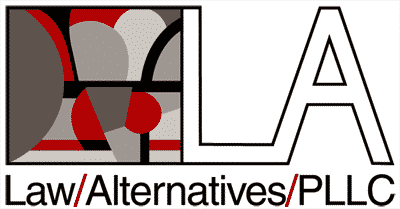What is a Revocable Living Trust?
A revocable living trust provides lifetime and after-death management of your assets. You generally serve as the trustee with one or more successor trustees designated to take over upon your disability or death. If a living trust is properly written and funded you can:
Avoid probate on your assets;
Plan for the possibility of your incapacity;
Control what happens to your property after your death; and
Prevent your financial affairs from becoming a matter of public record
What is Estate Planning?
Estate planning involves the preparation of legal documents designed to control the distribution of a person’s assets to his or her heirs or beneficiaries (e.g. a spouse, children, or a charity). An individual can plan for the distribution of his or her assets at death by using a Will and/or a living trust agreement. We can assist you with the preparation of a variety of trusts including, but not limited to:
Revocable Living Trusts;
Irrevocable Trusts (usually used for tax reduction purposes);
Supplemental/Special Needs Trusts (used to manage assets for individuals with disabilities);
Miller Trusts (used for Medicaid recipients).
Are there Any Drawbacks?
A revocable living trust is more expensive to set up than a typical will because it requires the preparation of the trust agreement and the transfer of your assets to the trustee. Also, a revocable living trust does not become operative until you have transferred assets to it. As a result, if you die without funding the trust, the trust will be of no benefit as your estate will still be subject to probate.
Do I need a Living Trust?
Most people need a will, but not everyone needs a revocable living trust. Whether a revocable living trust is appropriate for you depends on a variety of factors such as:
Whether you own real property in a state other than the one where your primary residence is located;
Whether privacy is a concern for you;
The complexity of the probate process in the state where you reside;
How wealthy you are; and
Your age.
How do we help our clients plan?
There is no one-size-fits-all solution in estate planning; each person’s situation is different and requires particular consideration. We have devoted most of this page to providing information regarding revocable living trusts because they are our most commonly requested trust mechanism. We are, however, happy to discuss any questions you may have regarding the other trusts mentioned above.
We listen carefully to the needs of our clients, then work diligently to educate them about the pros and cons of their wishes and potential options. If minimizing federal estate tax is an issue, we collaborate with our clients and their financial advisors to develop a plan designed specifically to protect our client’s resources. Even after an initial estate plan has been developed, we establish a suggested schedule to meet with a client to review and evaluate his or her plan to ensure it continues to meet our client’s specific needs and circumstances.
Prior to meeting with us, we ask potential clients to review and complete our Estate Planning Worksheet found below.We then schedule a consultation to discuss the information provided by the potential client and outline a suggested estate plan. After we reach agreement on the specific estate planning strategy desired by the potential client, we can then provide our range of fees for service.
